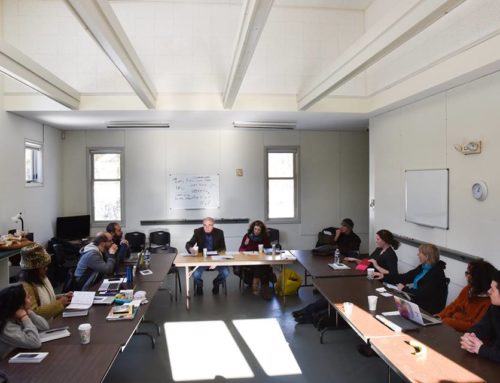The process an actor goes through in getting inside a role and bringing it to life has a lot of similarities to what a writer should experience in creating a role on the page. I know that sounds obvious, a given in our business. But I think it’s worth looking a little deeper.
In my career I’ve always been struck by how many good writers I’ve worked with started out as serious actors. And they have often shared with me that, to them, the creative process is much the same when creating roles, whether on the page, the stage, or in front of a camera. Of course, not all writers are actors and vice versa, but even those who haven’t combined the two artforms in their careers still acknowledge that the similarities are striking and that getting inside a role requires the same prep work and inner emotional connections between artist and fictional character being brought to life.
One of the most important attributes of a great performance on stage or film is the ability of the actor to play the subtext of a scene. All successful actors possess the gift of being able to bring to life what’s really going on under the surface when their actual lines are often saying something quite different. This is a critical aspect of the actor’s craft and what separates the brilliant from the average and raises acting into the realm of art–the ability of inviting an audience into a character’s unspoken thought processes and inner life. The actor who can dig deep and pull those hidden but very operative strings of his or her role in a story is the actor who will build a successful career and often reach stardom.
My contention is that the same principle applies to playwrights and screenwriters. And that studying the actor’s craft and how great actors prepare for and pull off amazing performances will pay huge dividends in terms of the aliveness of a writer’s work. It all starts with thorough preparation, exploring a character’s past and present, and discovering what makes him or her tick. It involves asking the right questions, like what baggage both emotionally and memory-wise is this character carrying with them into my story? What is really going on under the surface of each line? What is the throughline of each character and how does the experience of the story change them as human beings? What does the diction and “voice” of the character tell us about who the person is and what they think of themselves and the world around them?
All good actors ask these kinds of questions in preparing for every role they play. And it’s the writers who supply the answers or at least hint at the answers who will be rewarded by great performances and who will stand a much better chance of experiencing their stories brought to life with richness and depth.
I’m the Program Director of the low-residency MFA in Writing for Stage and Screen being offered by the New Hampshire Institute of Art and we are currently accepting applications for entering the program at our June 2014 summer residency. I’m also a playwright and screenwriter, producing partner in my production company Either/Or Films (The Sensation of Sight and Only Daughter), and a professional script consultant.






Leave A Comment